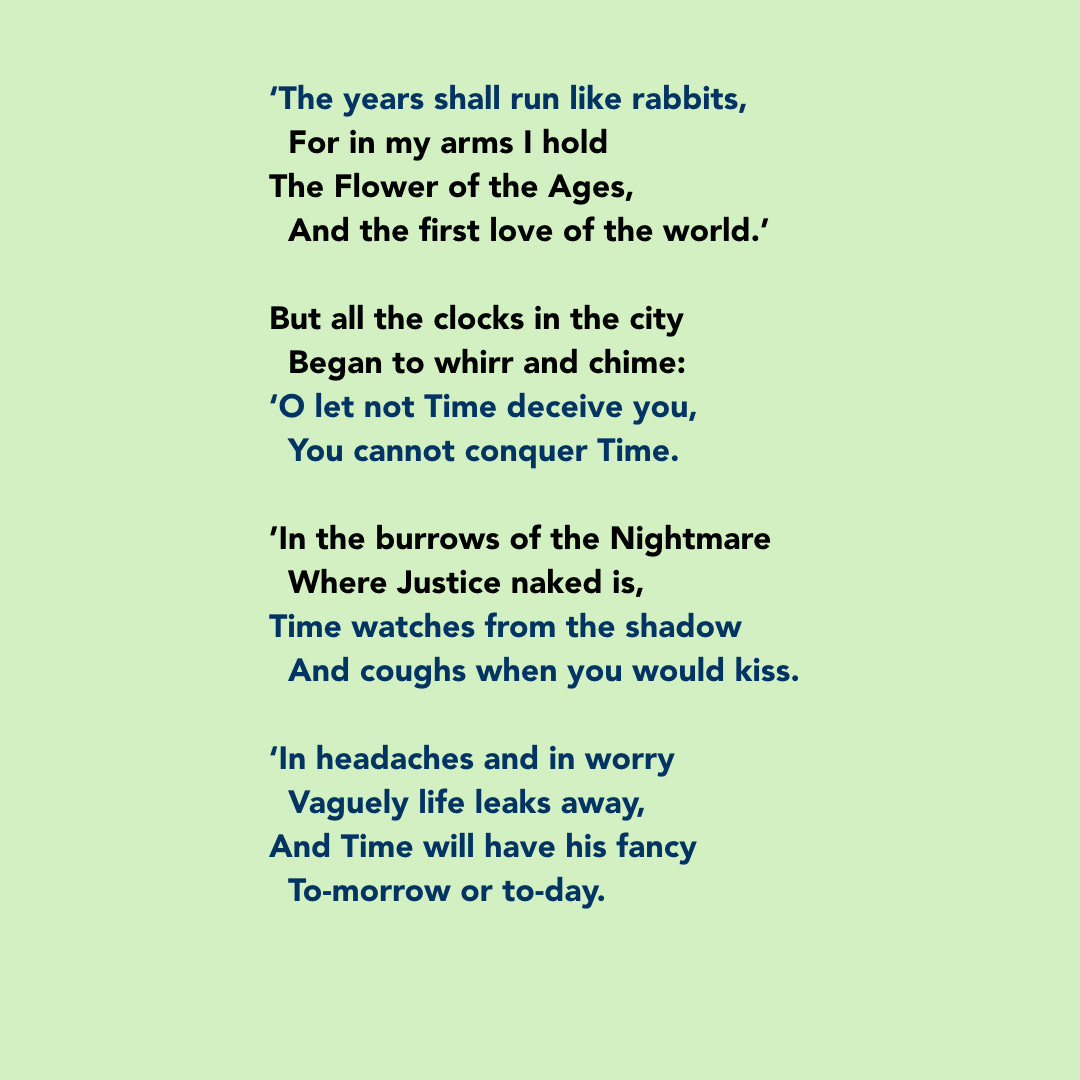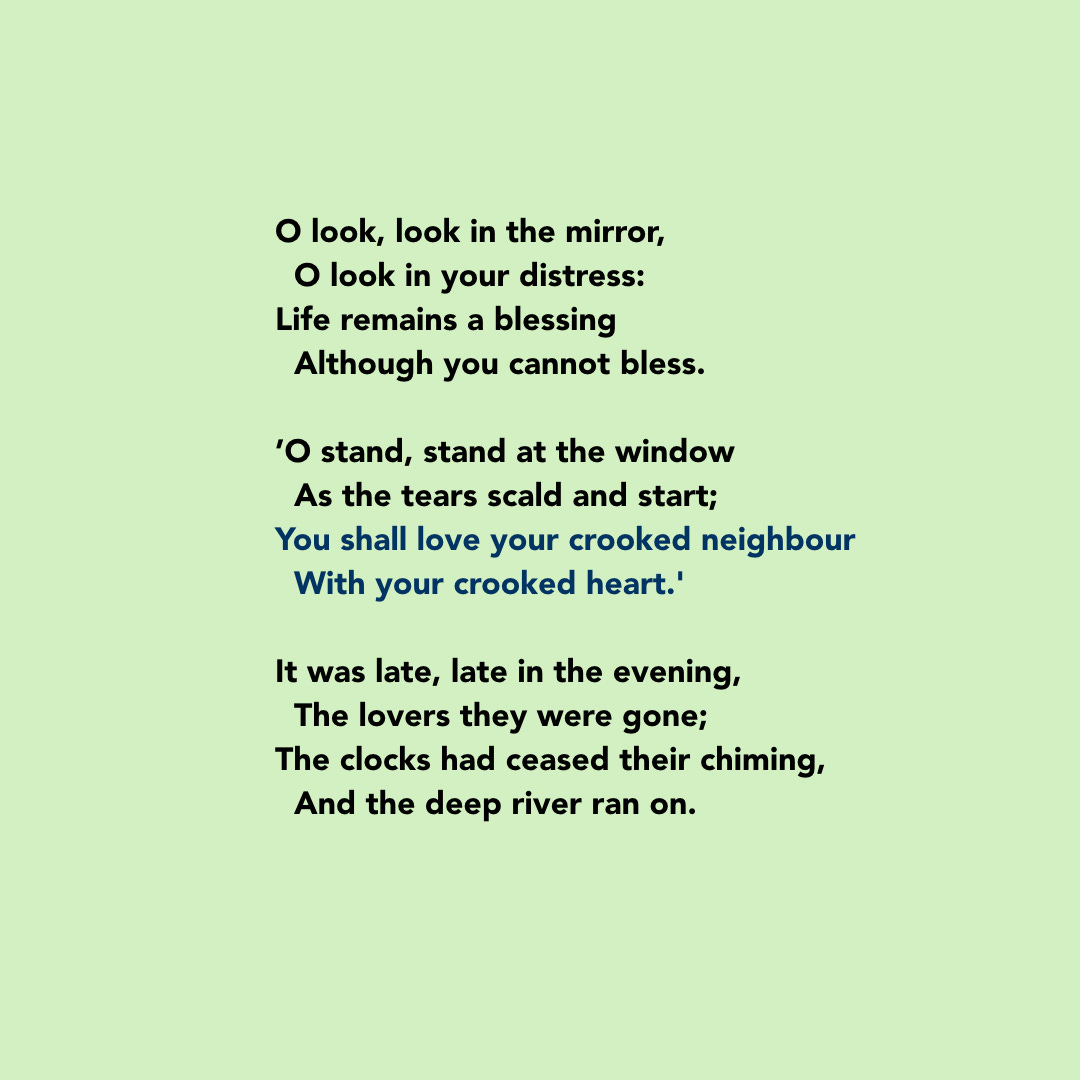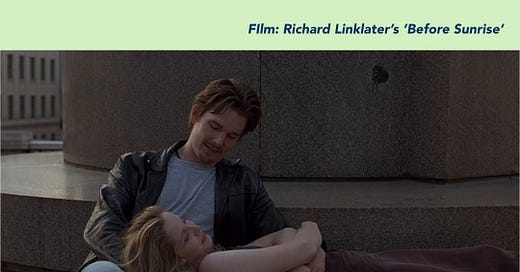Today’s poem is another conversation between two artists across the ages. In Richard Linklater’s stream-of-consciousness driven cinematic universe, two young people meet randomly on a train in Budapest, and decide to spend a day in Vienna together. Nothing really happens in this flick, if we take traditional Hollywood tropes as a yardstick.
It is apt that W.H. Auden’s timeless reflection on the nature of love, death, mortality and time bookends this narrative. Like the characters’ meandering conversations, the poem see-saws between cynicism and idealistic romance. Auden’s poem written like a ballad starts with epic declarations of immortal love and rings with the optimism and certainty of the pangs of first love:
‘The years shall run like rabbits,
For in my arms I hold
The Flower of the Ages,
And the first love of the world.’
The first half of the poem is littered with hints of an impending change of tone - from naïveté to the wisdom of age and experience. There is a contemplative arc through the poem itself, and as death stands in the wings of every utterance, we are reminded that the flush and vigour of youth is often eclipsed by harsh realities and realisations. Auden uses contrast throughout the poem and mocks classic pronouncements of love and youth in poetry, using the ballad with irony to upend existing conventions.
The young man Jesse mocks Dylan Thomas’s sombre reading of Auden, attempting to infuse the words with humour, but the poetry is symbolic of the fact that this somewhat fairy-tale like rendezvous between two strangers who feel a romantic connection has come to an end.
Also look at Auden’s Epitaph On A Tyrant







